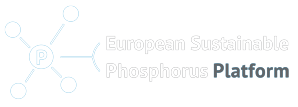Phosphorus is essential for worldwide food security
This irreplaceable natural resource is being used up increasingly fast. The demand for phosphorus is growing and virtually all phosphorus rock is mined in countries outside of Europe.
In Europe, phosphorus is not being treated sustainably. It disappears from the food chain as animal manure, human excreta and organic waste. However, solutions are available. We invite you to our Phosphorus Platform to participate, collaborate and innovate.
Hardly any raw phosphorus is available in Europe
Raw phosphorus is obtained from mining phosphate rock. These mines are for the largest part located in Morocco, the US and China. In Europe hardly any raw phosphorus is available, except for a very small quantity in Finland.
Therefore, virtually all phosphorus in Europe has to come from outside Europe. Due to increasing welfare in Africa, Latin America and Asia and an ever increasing world population, the demand for phosphorus is growing.
The dependency of Europe on raw phosphorus from outside Europe endangers our access and threatens our future food security.
Wasting phosphorus impacts the environment
In Europe, phosphorus is being treated in an unsustainable way. Through fertilizers, sewage and animal manure, large amounts of phosphorus and other nutrients end up in ground water and water bodies.
This is a direct threat for our aquatic ecosystems due to the process of eutrophication: increased levels of nutrients resulting in oxygen depletion. The impact on biodiversity is critical, since certain fish and other aquatic animal populations do not survive or invasive new species are introduced.
A phosphorus crisis affects us all
Developing countries are already facing the negative effects of the phosphorus challenge. As prices of raw phosphorus rise, access to fertilizers becomes increasingly difficult and eventually causes soil degradation. The developing world is the first victim of shortage and will be hit hardest.
For European countries, several factors already pose a serious threat for the access to raw phosphorus. Political unrest and climate change in phosphorus mining countries exert pressure on price and export security in any scenario. In the end, exhaustion of phosphorus and consequently the shortage of food will lead to political turmoil, from strikes and demonstrations to migration and war.
Call to action: participate, collaborate, innovate
Without access to raw phosphorus, Europe will be unable to feed its population. Unless we start to recycle more phosphorus and using it less. It is vital that we do not wait and we start taking action today. This is how we can close the phosphorus value chain:
Use less: food for people and animals contains more phosphorus than necessary. The surplus of phosphorus disappears through human excreta, manure and solid waste. We should reduce this surplus by minimizing the input. We can also further reduce the amount of phosphorus in cleaning chemicals.
Recycle more: The surplus of phosphorus ending up in human excreta, manure and solid waste is currently wasted. We should aim for maximum recovery and re-use of phosphorus from those waste streams.
Smart cooperation: Using less and recycling more will only be feasible when smart cooperation occurs between all sectors throughout the phosphorus value chain, between parts of the ‘triple helix’ (businesses, knowledge institutes, governmental organizations and NGOs) and between European member states.
